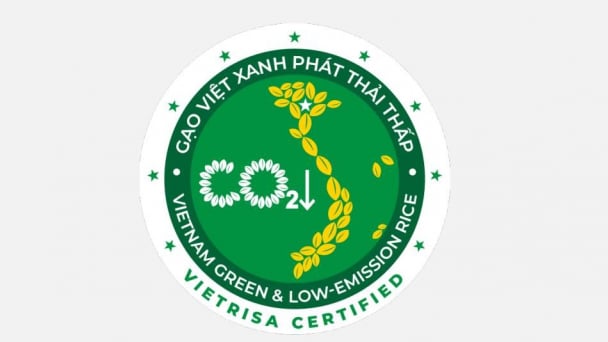May 15, 2025 | 16:36 GMT +7
May 15, 2025 | 16:36 GMT +7
Hotline: 0913.378.918
May 15, 2025 | 16:36 GMT +7
Hotline: 0913.378.918
On the morning of December 10, the Annual High-Level Forum on One Health for the Prevention and Control of Zoonotic Diseases for the 2021-2025 period took place. The workshop reviewed the achievements in implementing the tasks and objectives of the 2024 One Health Partnership Framework, emphasizing close coordination among the three co-hosting agencies, including MARD, in key areas to effectively manage pandemic risks.

Mr. Dang Ba Khanh, Representative of the Department of Animal Health, speaking at the Annual High-Level Forum on One Health (OH) for the Prevention and Control of Zoonotic Diseases. Photo: Kieu Chi.
Summarizing 2024, Mr. Dang Ba Khanh, an Epidemiology Specialist at the Department of Animal Health, reported: "The Department of Animal Health has implemented activities to prevent and control zoonotic diseases, strengthened animal disease management and control, and ensured food safety of animal origin, in alignment with the One Health Partnership Framework. Effective utilization of disease information from the VAHIS system has been a key focus."
In terms of international cooperation, the Department of Animal Health and FOUR PAWS co-hosted the second Companion Animal Working Group meeting, addressing issues such as rabies prevention, humane population management, animal rescue during disasters, and creating a roadmap to end the dog and cat meat trade in Vietnam.
The 2024 report highlights the complex developments in diseases affecting livestock, poultry, and wildlife. The A/H5N1 avian influenza outbreak resulted in 14 outbreaks across nine provinces and cities, leading to the culling of 97,000 poultry. Among humans, one death from A/H5N1 influenza was reported in Khanh Hoa, and two cases of H1N1 swine flu were recorded in Tien Giang and Son La.
Additionally, since the beginning of the year, 269 rabies outbreaks in animals have been reported in 36 provinces, a 14.95% increase compared to the same period in 2023. Human rabies fatalities nationwide reached 82, an increase of five cases from the previous year. Other zoonotic diseases reported include anthrax and Streptococcus suis infections.
Outbreaks of avian influenza have been reported in wildlife, causing the death of 20 tigers and one black panther at the Mango Garden Tourist Area (Dong Nai). Similarly, at the My Quynh Zoo (Long An), the A/H5N1 influenza outbreak led to the death of 27 tigers and three lions.
A representative of the Department of Animal Health added: "The vaccination rate has reached 59.55% of the total population of dogs and cats, an increase of 7-8% compared to the previous year. However, rabies prevention efforts continue to face significant challenges, with the number of human deaths from rabies showing an upward trend. Vietnam currently has approximately 7.2 million dogs and cats across 4.2 million households, with the highest numbers recorded in Hanoi and Nghe An."
According to Mr. Dang Ba Khanh, the Department of Animal Health will continue to prioritize the control of zoonotic diseases, focusing on preventing the entry of new pathogens from abroad into Vietnam, improving the disease surveillance system, enhancing the antimicrobial resistance (AMR) monitoring system, and strengthening AMR-related response systems, food safety, and multi-sectoral collaboration. The department will also coordinate with the Preventive Medicine Department to organize a conference identifying zoonotic diseases under the One Health Partnership Framework.
Each year, the Department of Animal Health advises the Ministry of Agriculture and Rural Development to submit documents to the government for directing and managing activities related to zoonotic disease control. The veterinary system ensures sufficient human resources to implement preventive measures seamlessly from the central level to local levels.
Translated by Kieu Chi

(VAN) Veterinary training should focus on quality, not just quantity. Veterinarians also need more options to pursue specialized training.

(VAN) The veterinary industry needs to be viewed objectively and further invested in to properly demonstrate its role and importance in the new context.

(VAN) The number of veterinarians graduating each year is not enough to meet actual needs, hence a difficult problem for the growing livestock industry.

(VAN) The strategic partnership between Cambodia, the Philippines, Vietnam, and CGIAR ensures that innovative solutions effectively address national priorities for food system development.

(VAN) This was affirmed by the UK Minister of State at the Department for Environment, Food and Rural Affairs during a working session with Deputy Minister Tran Thanh Nam on May 13.

(VAN) On May 13, the Ministry of Agriculture and Environment, in coordination with the Embassy of Vietnam in the United Kingdom, organized a seminar titled 'Connecting trade in Vietnam-UK agricultural, forestry, and fishery products'.

(VAN) The launch of the Vietnam green and low-emission rice brand is a positive signal for both businesses and farmers, marking readiness to reach new heights in the global market.